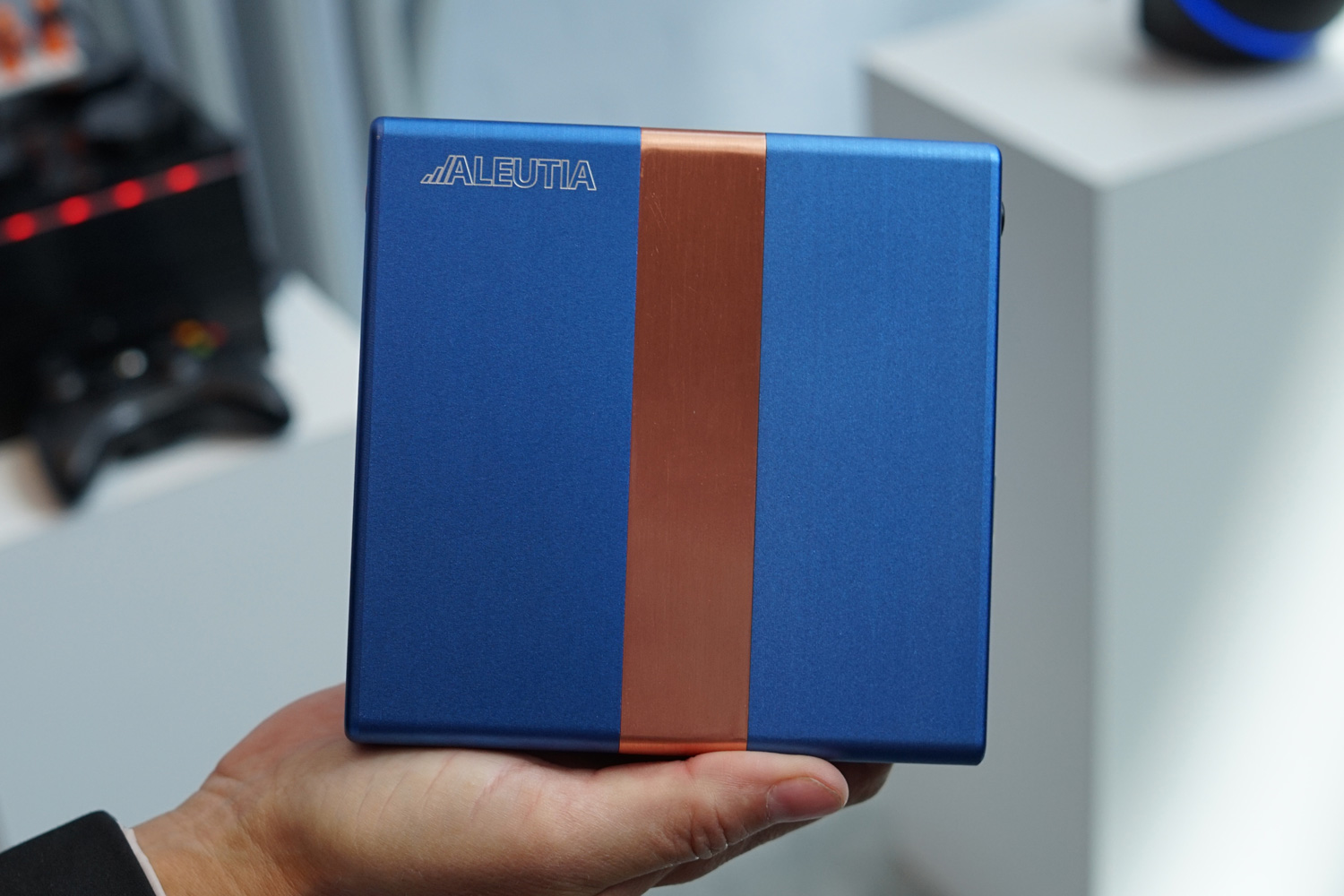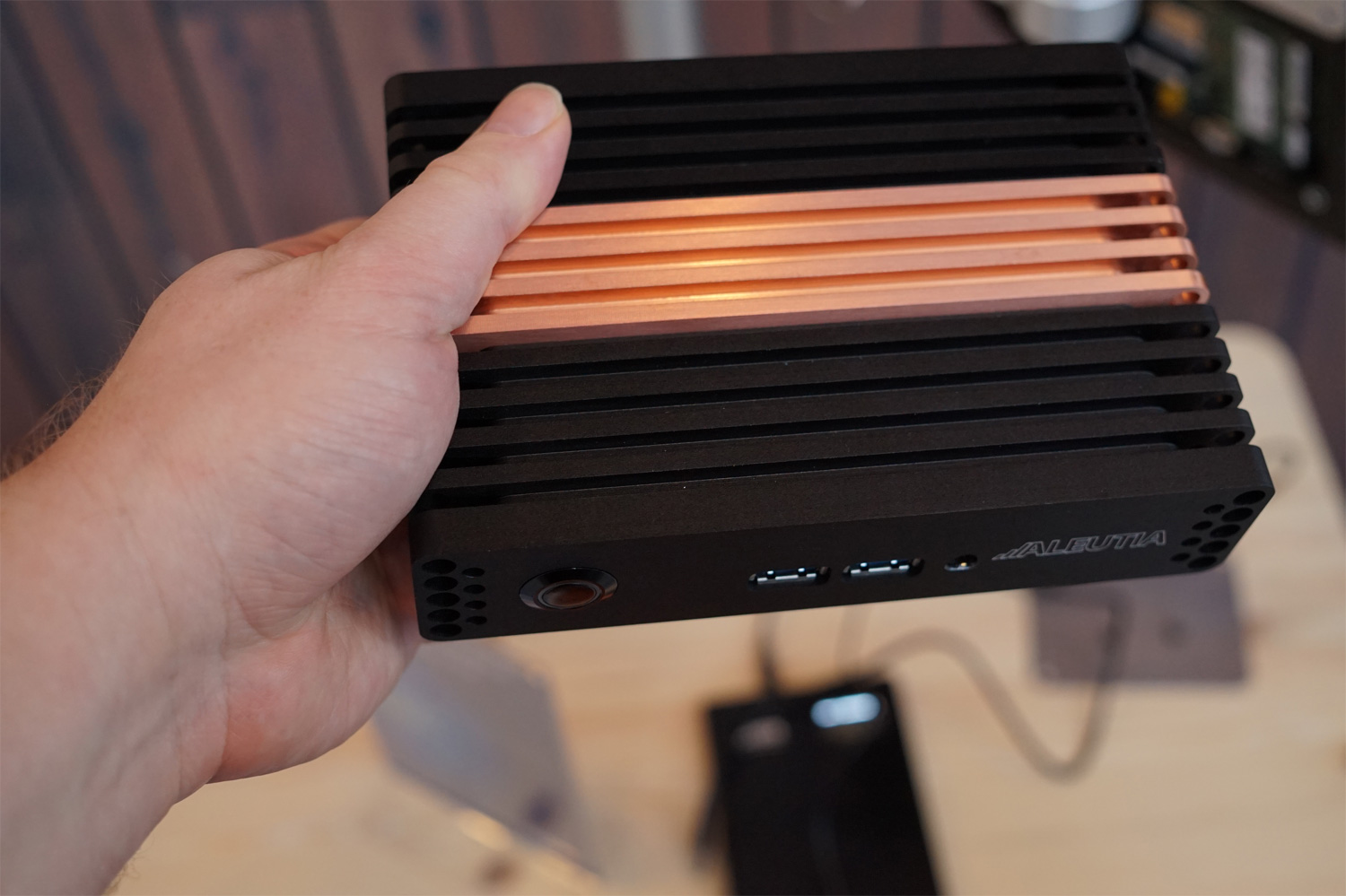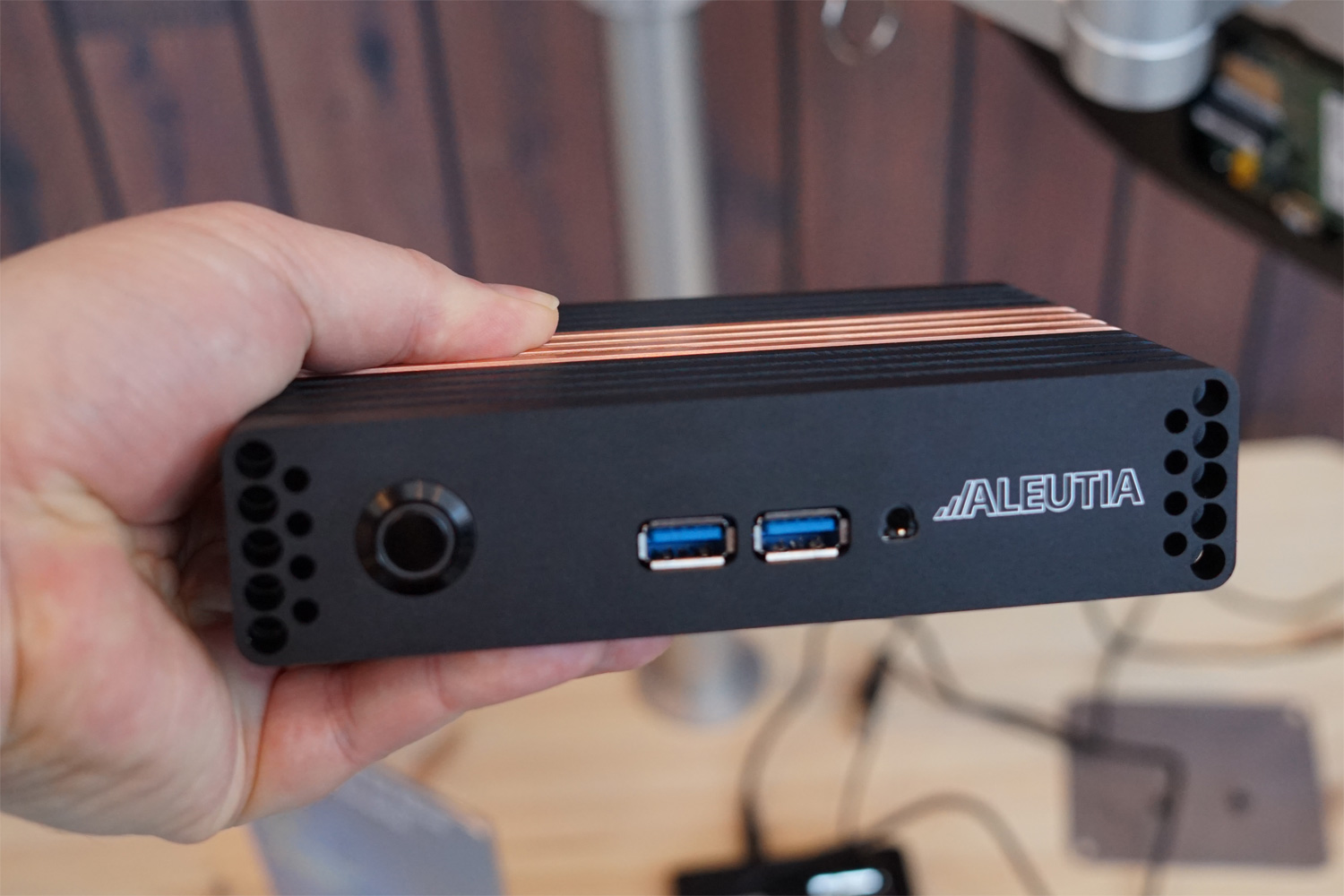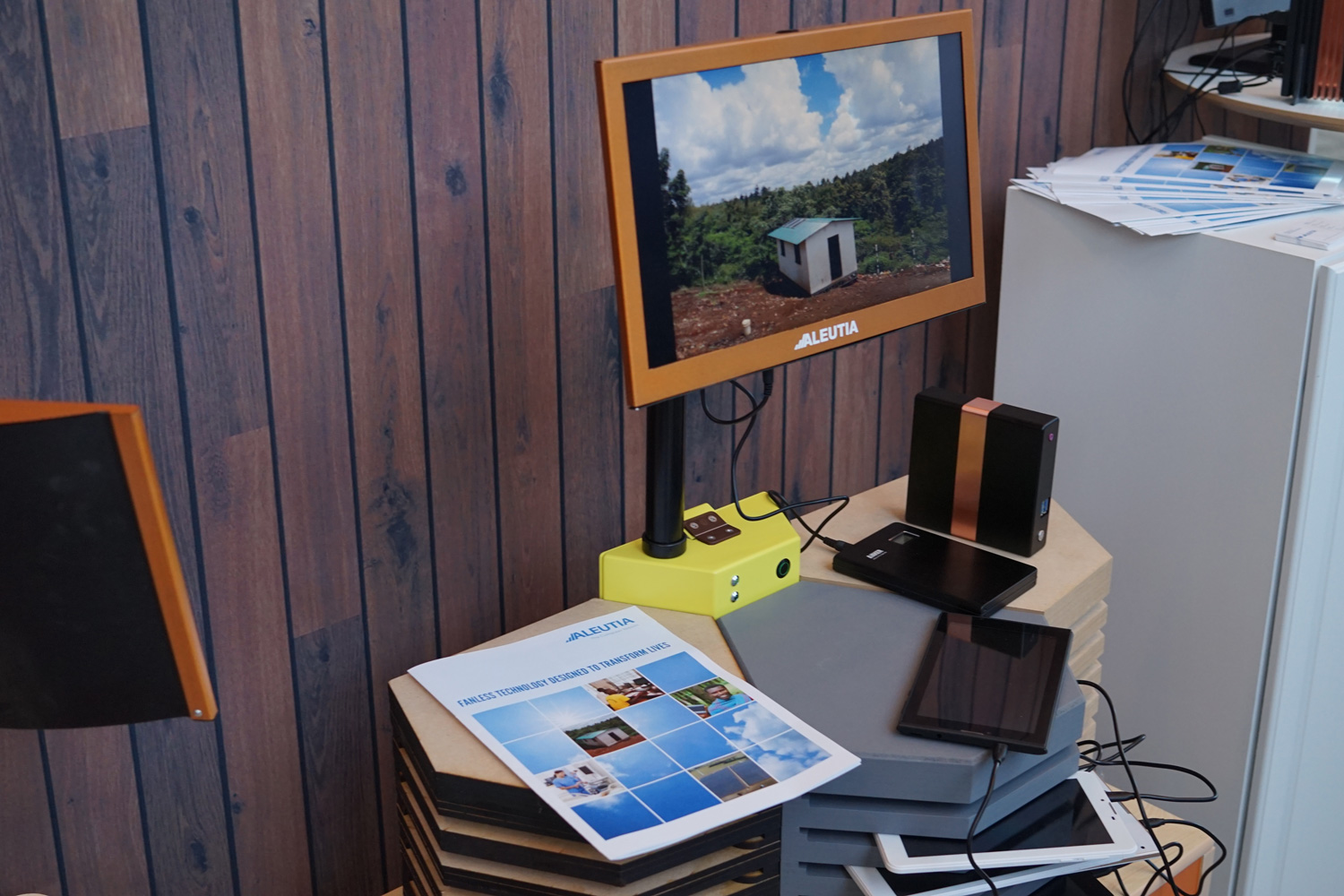Stunning Mini PCs Offer Fanless Core i5 Power
Aleutia's T1 and R50 mini PCs use stunning copper chassis to dissipate heat, without any moving parts.
SAN FRANCISCO — If you believe that computers should be seen and not heard, your choices today are somewhat limited. A few Core M-powered systems can use passive cooling, but if you need something a little more robust, you usually have to live with some fan whir. Enter Aleutia, an innovative tech startup making powerful mini PCs with special aluminum and copper chassis that can dissipate heat, without any moving parts. At IDF 2015, the company showed off a pair of low-power, fanless computers, designed for the most challenging environments.
Though users anywhere in the world can appreciate a silent computer, Aleutia designs its mini PCs for developing markets with rough elements and limited access to electricity. The London-based company specializes in equipping schools in rural schools with solar panels and connecting them to low-power computers. Fanless mini PCs use less electricity than a typical desktop or laptop and don't get clogged and broken by sand and dust, which are ubiquitous in certain rural environments.
MORE: Best Mini PCs - Computers That Can Fit in Your Hand
The company sells two models of mini PC both of which are based on Intel's NUC motherboards. The T1 is powered by a 2.4-GHz Intel Celeron J1800 CPU and, depending on how you configure it, with 2 to 8GB of RAM and an mSATA SSD with a 120GB to 1TB capacity.

The larger R50 comes with a Core i3 or Core i5 CPU, 4 to 16GB of RAM and a 60 to 512GB mSATA SSD. Both systems have four USB ports, an Ethernet connector and 3.5mm audio jacks. For video out, the T1 has both VGA and HDMI ports while the R50 has dual mini DisplayPorts.

Because DisplayPort-enabled monitors are rare in developing markets, Aleutian includes a miniDP to VGA adapter when selling to schools. The company also supplies AC to DC power adapters because the solar panels many of its clients use output directly to DC.
Both mini PCs have unique and stunning chassis. The T1 has a dark blue, brushed aluminum body with a bright copper stripe in the middle. The R50, which is slightly larger and heavier has ridged design and is made of black aluminum with a shiny copper section in the middle. In both cases, the copper stripe helps the body dissipate heat from the CPU and other internal components. The ridges on the R50 also help distribute the thermal load.
Get instant access to breaking news, the hottest reviews, great deals and helpful tips.

Though the T1 and R50 were designed with developing markets in mind, Aleutia also sells them to consumers and first-world institutions. Managing Director Mike Rosenberg said that the company plans to make both models available on Amazon.com in the near future, but today, it sells them through its website. The T1 currently starts at 349 British pounds while the minimum R50 configuration goes for 599 pounds.
In addition to its mini PCs, Aleutian demonstrated its 15-inch all-in-one PC, which also uses a NUC motherboard and a fanless design. Unlke most all-in-ones, this one has a service panel in the back so users can change out the RAM and SSD.
MORE: Intel's IDF Demos: The Good, The Bad and The Terrifying
The company also unveiled its new tablet charging station. Designed for schools that don't have access to the electrical grid or the Internet, the station connects to solar panels on the roof and has charging bays with USB connectors for up to 15 tablets. Using a 15-inch touch screen and included software, the charging station can also copy data files to all the tablets at once.

Rosenberg said that schools with little or no Internet access will be able to store videos on the charging station's internal 512GB SSD and then distribute them to any devices attached to it. Imagine a rural school where all the kids have inexpensive Android tablets and the teacher gives them all an educational movie to watch for homework.
With its "Solar Classroom in a Box," program, Aleutia provides all the equipment a school would need to set up a 10-unit computer lab and power it using solar panels. The PCs in this program come with open-source educational software and an offline copy of Wikipedia, because many of the areas involved don't have Internet. The company says its solar solutions power classrooms in 13 sub-Saharan nations and serve more than 240,000 children.
Aleutia says that it also sells a lot of mini PCs to businesses and institutions in the UK and U.S. According the company's marketing materials, restaurant chain Pret a Manger uses the T1 as a server in its retail locations while the University of Cambridge is also a client.
-
beepbeepcar Rather than Intel's spider robots and spy vending machines, this sort of low TDP but practical product that is possible as a result of Intel's focus on mobile, is much more inspiring and meaningful. Hopefully tech sites could be less wowed by Intel's impractical gimmicks and give more publicity to this sort of thing instead.Reply
So fanless mini-pc's isn't just another HTPC for the rich world, it can bring practical benefits for the rural developing places too.
 Club Benefits
Club Benefits





